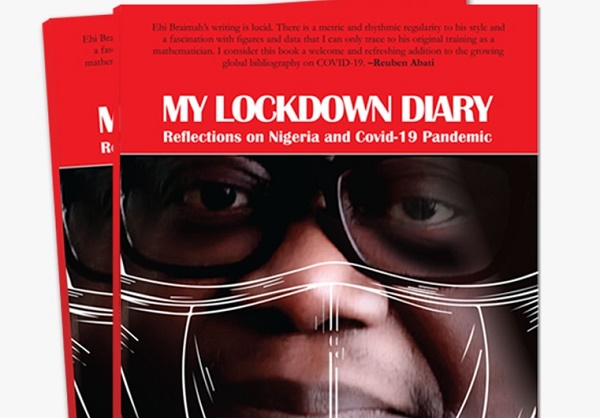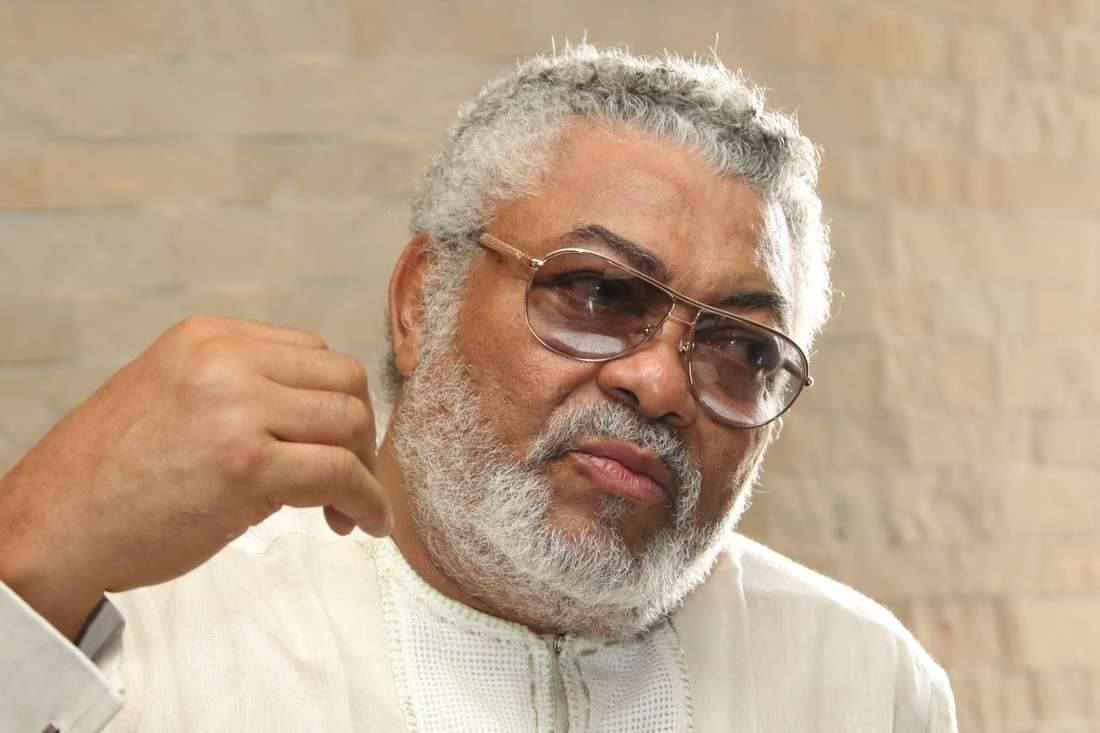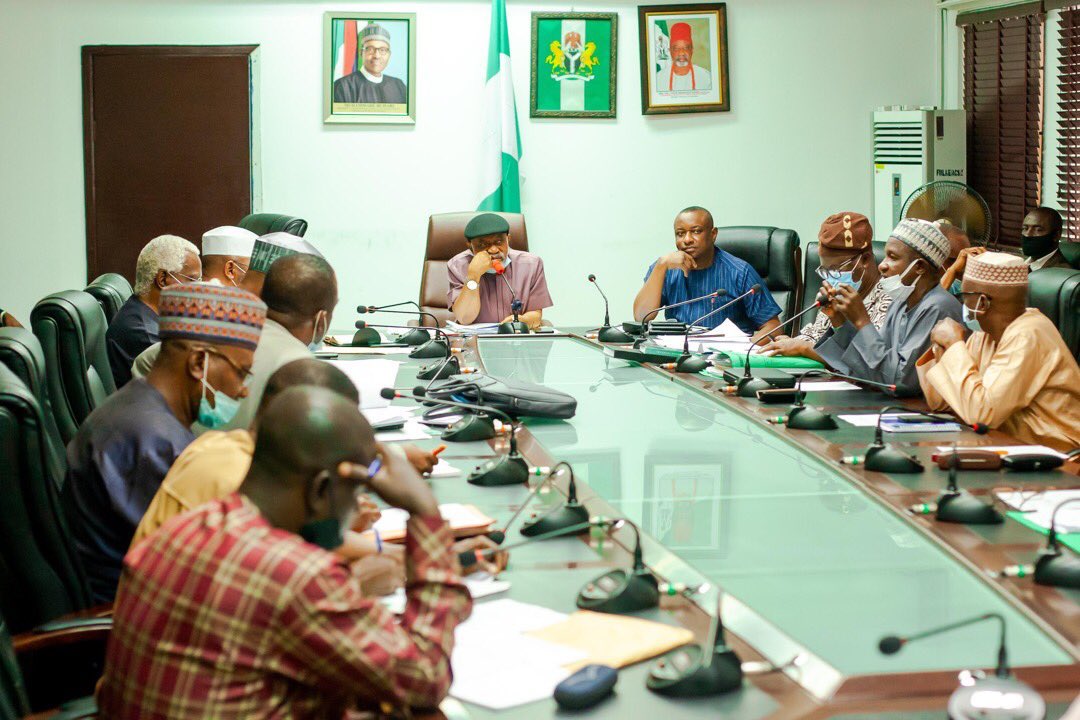Religion and education, two of humankind’s most ancient disciplines, have for years been closely connected. Historians and social scientists have written about this relationship and how the two may influence each other.
Contemporary access to schooling – a solid pathway to educational attainment – depends on a country’s educational infrastructure. In many instances, the foundations of that infrastructure are based on facilities originally built by religious leaders and organisations to promote learning and spread the faith. Religion immensely contributes to the development of every nation within which it is found. Religion is no panacea, but aspects of it can complement as well as motivate development. Though it can undermine and obstruct, the avenues by which religion influences development activities in different aspects of national life are haunting in their complexity (Alkire, 2007). Religion may serve as an advocacy for funding, innovation, education, empowerment, social movement and service delivery.
In India, the most learned men (and sometimes women) of ancient times were residents of Buddhist and Hindu monasteries. In the Middle East and Europe, Christian monks built libraries and, in the days before printing presses, preserved important earlier writings produced in Latin, Greek and Arabic. In many cases, these religious monasteries evolved into universities.
Other universities, particularly in the United States and Europe, were built by Christian denominations to educate their clergy and lay followers. Most of these institutions have since become secular in orientation, but their presence may help explain why populations in the U.S. and Europe are relatively more educated.
Advertisement
Apart from their roles in creating educational infrastructure, religious groups were foundational in fostering societal attitudes toward education.
In Nigeria, like in other nations, religion and education are inseparable from each other. Each has existed to the benefit of the other since the 16th century. A study of the development of education in Nigeria cannot proceed without recognising the pioneering efforts of missionaries (Christian and Muslim) in formal education which initially brought the gates of higher learning closer to the people.
The development of Nigeria and Africa, at large, calls for an insight into the impact of religion on modern education. Appraising the impact of religion on formal education on the development of Nigeria is central to this lecture and an important aspect worth discussing. Development exponents and agencies time and again refer to wars of religions and their attendant consequences as reasons for a total neglect of religion as partners in development. Therefore in discussing issues of sustainable human and national development, there is a disinclination to consider the power of religion. Their main grounds for this come from their perceived intolerance among the religious faithful. By going through the text, readers will be able to know the purpose and contributions of religion and education to national development.
Advertisement
In order to put this lecture in context, it is pertinent to outline the historical missionary activity that led to the establishment of mission schools. One of the intriguing questions is: what would have been the nature of Nigerian education if the Christian missions had not come to Nigeria in 1842 and thereafter? According to Babalola, “the greatest contribution of the missionaries in Nigeria was in the field of education. The first known school in Nigeria was established by Mr and Mrs De-Graft of the Methodist Mission in Badagry and was named “Nursery of the Infant Church.”
Earlier in 1839, some freed slaves of Yoruba origin, who were already settled in Sierra Leone, petitioned the Queen of England, requesting that missionaries be sent to evangelise Nigeria. The call from the ex-slaves led to the influx of a good number of freed slaves into Badagry, leading to the establishment of the Christ Missionary Society(C.M.S.) mission there. In 1850, the Baptist Mission, led by Thomas J. Bowen, also arrived Badagry, from where they relocated to Ijaye, where he established their first mission station.
The Catholic Mission followed suit in 1862, following the arrival of Fr. Borghero and his team members of the Society of African Missions (S.M.A.) in Lagos. Prior to their arrival, there were series of agitation from the former slaves from Brazil, who had already settled in Lagos, asking the establishment of the Catholic Church in their area. This prompted a warm reception on the arrival of Fr. Borghero and his team. Subsequently, a piece of land was immediately offered by the British government, for the establishment of a school and a mission station in Lagos. This venture materialised in 1868 when the first Catholic mission was built. Within the next couple of years, the Catholic mission in Lagos grew and spread to other parts of Nigeria, including Onitsha in Igboland, on December 5, 1885, under the leadership of Fr. Joseph Lutz.
It should be noted here that the various Christian missions of Europe and America came into Nigeria through the southern sea routes of Lagos. Its easy accessibility and location as a port city made it a strategic point of disembarkation for the Christian missionaries, after months at sea. This explains the factors which made the southern areas of the country convert to the Christian faith, as compared with the northern parts, which are predominantly Islamic mainly because of the entry and spread of the Islamic religion from the northwest of the country, through the Arab traders and scholars, who entered Hausa-land in the fourteenth century.
Advertisement
The Role of Religion in Education
Education indicators in Nigeria reflect gaps of gender disparities, spatial disparities between rural and urban areas, as well as geographical disparities between southern and northern parts of the country. Those disparities drive public action against illiteracy and inequities in access to education. In recent years, addressing challenges posed by these gaps has been the concern of many religious bodies in Nigeria. The history of education in Nigeria reflects the antique relationship shared between Christianity and education. Similarly, Islam shares great ties with the development of education in Nigeria, especially if we discountenance the erroneous identification of education as a strictly western model. Religious bodies, as one of their primary services to society, have sought for the moulding of citizens through schooling (education). The impartation of knowledge to generations has been the primary focus of the two major religious groups present in Nigeria.
There are a number of Muslim missions or Islamic groups in Nigeria: the Ahmadiyya, Ansar-ud-deen, Tijaniyya, Sufituruq, Qadiriyya, Shiite and the AhlusSunnaWal-Jama’a. Prominent among them in terms of educating members and Nigerians are the Ahmadiyya mission and Ansar-ur-deen. An Ahmadiyya Muslim Mission is to lead his/her life in accordance with the Shari’a; motivate, train (educate) and involve the entire jama’at in the field of missionary effort. In Nigeria, the contributions of Islam to education mostly started from the north. Aside schools set to train and educate Muslim children, there were Missionary Training Institutions that also provided education to Nigerians.
As the first religious group to introduce formal education in Nigeria, Christianity has served several purposes in the development of Nigeria’s education. Like Islam, Christianity has promoted the training of citizens from the basic level to the tertiary level. This was done through the establishment of educational infrastructure and events/activities that are purposed to make education a better one. There are hundreds of educational institutions established by different Christian groups in the country. The history of Nigeria’s education depicts a high sense of commitment toward educating citizens in both secular and religious disciplines. Their contributions to the promotion of knowledge are made possible by the inevitable connectivity existing naturally and theologically between religion and education, hence development.
Advertisement
Education in Nigeria has come with several positive implications, which have aided the advancement of the nation. Nigerian education has for several years been characterised as a path that provides direction, adjustment and self-activity. It has also been seen as a means of social change and progress as well as a process of socialisation. Among the relevance of education are the following:
- The accumulation and storage of human resources
- The formation of mind, personality or character
- Serves as a means for preparation, gender empowerment and mental discipline.
- Developing democratic citizenship
- Promotion of leadership qualities and vocational efficiency
The Rise of Private Schools
Advertisement
The rise of private schools is linked with the coming of mission schools, although it should most appropriately be linked with the failure of public schools (Arinze, 2016). Private schools are schools started by private organisations, groups, and individuals. They are different from mission schools because they are more secular in nature and more business-like and profit-oriented. The coming of private schools into the mainstream of Nigeria’s educational system occurred in two phases. The first phase was in the early 1900s when missionaries started mission schools. This was due to the inability of mission schools to meet the rising needs of the number of people who wanted to go to school. The second phase was after the government released the schools that they had taken to former owners, such as the mission churches. Private schools came up again due to the pressure to have more schools all over the country and also because of the fallen standard of education in public schools (Wycliff, 2012).
Since the government returned the schools to their former private owners, there has been an increase in the rise of private schools at the primary, secondary, and tertiary levels in the Federation. Various communities, corporations, foundations, and individuals have been involved in the setting up of private schools (Arinze, 2016). The growing patronage of these private schools is a result of the belief by the populace that they perform better in academics than the government schools. Also, it is due to the fact that there are no interruptions, disruptive breaks or unwarranted prolonging of their academic year, unlike the government schools (Arinze, 2016).
Advertisement
It can be said here that the private sector at the beginning imitated the mission schools in seeing schools and education as a social responsibility and therefore as a community service. Education was used as a potential tool for self-reliance and self-empowerment of individuals and communities. Therefore, education was made available and affordable to all who desired it. Initiatives like scholarships, sponsorship, and even free education were given to the poor, less privileged, orphans, and children of widows (Ajah, 2015). All of these characteristics were borrowed from the examples of the mission schools. Today, any private school that is worth its salt is not open to the average Nigerian due to high school fees, and those that are affordable to the poor and average people lack government accreditation, qualified and adequate staff, among other issues (N.B.S., 205).
Private schools, especially primary and secondary, were springing up all over the place around the country like shops (Arinze, 2016). The issue seemed not to be because of the high demand for education by the Nigerian populace of school-age children alone but because of the economic challenges in the country. In the midst of the escalating cost of living, heightened by unemployment, many seemed to believe that the easiest and fastest business to do to earn money was to start a school. These schools just appeared overnight in several cases, and in the most awkward places in the community. They were not well thought out and planned before they were established. Most were found in residential buildings, flats, bungalows or a compound, sometimes in uncompleted buildings, by the market place, near hotels, gas stations, and waterlogged areas. Such private schools had no playgrounds, playfields or play facilities for either pupils or students apart from the inappropriate and dangerous environment in which they were found (Arinze, 2016). These situations were fostered by the unwillingness or incapacity of the government agency in charge of schools to carry out their appropriate official duties (Awodipe, 2016).
Advertisement
In the past decades, private schools became poorly funded due to low revenue and because they lacked patronage comparable to that of government schools. They were usually of inferior quality and in some cases, of six-year instead of five-year duration. Today, the name “private” school is applied to all schools owned by corporate bodies, religious organisations, individuals, or establishments. Contrary to their previous poor standard and performance, private schools today are better funded, better organised, and have better academic performance than government schools (Irekamba, 2016). This is as a result of the fallen standard of public schools. There may be an exception to this, especially in the states of the South East of the country where the Catholic mission still plays a dominant role in the establishment and control of educational institutions, thereby influencing the high standard of education in public schools in those states. Whatever the merits of these private schools, there are still some private schools that employ and maintain poorly paid staff members who are dissatisfied with their conditions of service (Arinze, 2016). This usually has a negative impact on the overall performance of such schools as these staff members will not put in their best as educators (Abdullahi, n.d.).
Beginning of “Religious School”
While it is true that Nigeria did not yet exist as a political unit in mid-19th century, the nearest approach to the Nigeria of today was to be found in C.M.S. circles because their mission fields were the likely basis of the new nation. In this regard, it can be argued that the C.M.S. mission gave Nigeria the shape that it later took. The missionaries of the C.M.S. desired that the British flag may be hoisted, especially within their areas of operation. It was their areas of operation that later became modern Nigeria.
At independence in 1960, and as a result of missionary training, the young nation, Nigeria inherited a civil and public service staffed and led by some men and women who possessed the requisite skills, techniques, knowledge and attitudes to achieve the objectives of government by transforming paper plans into real practical services (Uruakpa, 1996). Thus missionary training succeeded in providing the intellectual, political and skilled workforce for nation-building. It is essential to bear in mind, not only that this preceded the establishment of British rule, but also that it was undertaken in the belief that direct British rule was unlikely and that whatever social, political and economic changes were considered necessary in the country would have to be achieved by encouraging a new class of Nigerians themselves to reconstruct their environment.
The mission schools thrived on the grounds of consciously prepared, nurtured, and nourished political and socio-economic situations in the 1800s to 1960s. However, they lost their very place and position in the events that followed after 1966 in the political scene of Nigeria. Despite this, their relevance in the areas of discipline, morality, and character-building continues to ring a bell in the minds of many Nigerians, especially Christians, as they are regarded to be a very important aspect in Nigerian education (Irekamba, 2016). With the failure of public schools and the high cost of private schools, coupled with private schools’ secularism, the church started clamouring for the government to return former mission schools to the mission churches since they did a better job at running them than the government, and private schools were not making things easy financially for people (Adesulu, 2016).
Church schools are a bit different from “mission schools” as they were known in the days of the white missionaries or the days before the civil war in 1967. The white missionaries established mission schools after the pattern of the educational system in Britain and for the purpose of evangelism. They were mainly established to teach the people to read and write so they could be equipped to read the Bible, become evangelists, teachers, artisans, and clerks. Later on, the curriculum was extended to include the liberal arts and sciences.
Church schools today are established by indigenous local churches. Some Christian individuals have also established Christian schools that can be categorised as church schools. Although the church does not own the schools, they are run by Christian principles and sometimes are influenced heavily by the tradition of a particular church denomination. Church schools were established to take care of the fallen moral standards in public schools, to tackle the secularism in most private schools, and to address the non-committed attitude in the teaching of Christian religious knowledge in the public and private schools.
The fallen standard of education and academic performance in public schools, the ineffectiveness of religious teaching, and the loss of moral values and character discipline in public and private schools led the church to demand permission to begin church schools (Adesulu, 2016).
The federal government of Nigeria declared in its National Policy on Education that education is an instrument par excellence for achieving national development. This presupposes that any meaningful growth and development of any society will be preceded by sound educational planning. Education constitutes an indispensable aspect of social realities of a community or society, and it is of cardinal importance to any society (Abiogu, 2014). The standard of education can be defined in several ways in Nigeria. It can be said to be the ability to read and write in the English language. It can be seen as the ability to pass certain required sets of examinations after a given period of learning. It can be said to be the attainment of the aims and objectives of education set up by the government in a state or in the country. It can also be seen as the academic, moral, and religious transformation of the learner as approved by the society and their ability to contribute to the welfare of the society (Uwameiye, 2014).
As beautiful as all these are, many Nigerians believe that education has fallen from these expected standards. Several factors are adduced as the reasons for this. Among them are government policies on education that were and still are counter-effective such as the quota system that justifies discrimination and demerit against more qualified candidates. Mismanagement and misappropriation of educational funding is another reason. Inadequate budget for the education sector is also another reason. The government’s appointment and promotion of unqualified teachers due to their ethno-religious background contribute too to the fallen standard of education in the country.
The need for quality education thus led to the proliferation of private schools. It must be pointed out, however, that, private schools, which were the alternative to public schools for anyone who needed quality education, were too expensive for the average family. This was due to the cost of running the schools, which includes hiring well-qualified teachers, having well-equipped laboratories, purchasing sufficient teaching and learning materials, and having standard building structures (Abayomi, Asomba and Youdeowei, 205). It should be added here that all of the above reasons for the high tuition in many private schools today, especially the efficient ones, were not there in the 1920s to about 1960s, during the era of mission schools, when education was seen as a social responsibility and service to the community (Okpalike, 2015). They also did not develop overnight. It was a gradual process that involved many factors. These included the fallen standard of education in government schools, abandoned and dilapidated public-school buildings and facilities, withholding of funds and aid from the government, the cutting down of government scholarships to students, the shift of education from performance-focused to paper qualification-focused, and the change of the educational system from a non-profit organisation to an entrepreneurship venture (Adesulu, 2016).
Some other reasons why private schools are quite expensive for the common people are the extra charges alongside the tuition fee such as the development levy, supposedly for developing some sort of infrastructure or some facilities needed in the school (Oguntola, 2012). This is usually not the case in reality as the funds are rarely used for that purpose since the school buildings are already completed with every facility needed in place from take-off. The schools just continue to collect this levy habitually for no legitimate reason. The same goes for the Parent-Teacher Association (P.T.A.) levy, which most times has outlived its purpose and is only used for other frivolous things (Oguntola, 2012).
Other levies include that of examinations, art or science practical experiment, and compulsory extra-mural lessons for all students after regular school hours. One wonders why such levies are charged after payment of tuition, especially the lesson levy. Why should the school have extra lesson hours outside the class hours for all the students if the teachers are teaching well and are covering the academic curriculum? Most of the time, it is only a scheme to enrich the school and the teaching staff (Abayomi et al. 2015). Teachers sometimes take advantage of this and refuse to teach all their mandated topics in the regular class hours but fix them during the extra lesson periods, thereby forcing students to register and attend the extra lessons by compulsion. How can this not have adverse effects on the students’ mental assimilation, seeing that they are exhausted from the regular classes of the day? (Elekwa, 2016). This extortion in the name of school fees and levies also manifests in the form of compulsory charges for textbooks that are more expensive in the school store than they are sold in the book shops. This is also coupled with the fact that these books are revised every year by the book publishers in collaboration with the schools so as to keep on selling new books without allowing the old ones to be used by siblings. The publishers give commissions and discounts to such schools (Ugwulashi, 2012)
Some parents just love fanciful appearances, whether they are building structures, book covers, or school uniforms and hostel wears (uniforms), without considering the academic performance of the school. Some parents compete among themselves over whose children attend the most expensive school as a form of social class (Amaka et al., 2015). Competition is also rife among schools on the issue of teachers’ salaries, for the higher the salary, the more qualified and experienced teachers they can get. This has continued to cause the fees charged by private schools to soar high beyond the reach of the poor and less privileged (Amaka et al., 2015). These practices have also crept into the church schools, and this ought not to be (Oguntola, 2012). The church schools must not be seen to be run like the private business-like schools but as a community helper. This is because most churches in Nigeria are rich in money and possessions from the tithes, offerings, vows, and free-will “seed- sowing,” as well as from church businesses and ventures. Therefore, the churches can afford to offer free or subsidised pre-primary, primary, and secondary school education to members and communities. If this is correctly taught from biblical scriptures and well organised, it can be done (Oguntola, 2012). Wealthy private individuals in the churches will also be convinced to donate towards education as a Christian social service.
Quest for Development: The Role of Religion in Education
A voyage into the history of Nigeria confirms the axiom that Christianity, the mother of the church and education are intertwined. Olawoyin citing (Ajayi, 1965), observes that before, during and after colonisation, Christianity has been involved in the making of a new elite through education in the area now known as Nigeria. Before private universities were allowed in Nigeria in 1999, Christian Missions and churches had been involved in the establishment of primary, secondary (including modern and high or grammar), teacher training, vocational and theological schools. It is also, a well-known fact that the quality of education produced by these schools when the missions and churches were running them was high, academically and morally. The graduates of the schools were disciplined, hardworking and brilliant. The high quality that the missions and churches gave education then is what is spurring the state governments to return the schools to the churches and even allowing private universities. The Christian churches had been in the vanguard of establishing these private higher institutions in Nigeria.
The involvement of the church in education as seen in Nigeria, both at lower and higher levels, is a reflection of what had been going on in Christian history whenever and wherever Christianity becomes entrenched. In fact, the modern university system is Christian in origin. For example, Bologna, Paris, Oxford and Cambridge, were originally Christian Catechetical schools. Similarly, the best universities in the world today, which are mainly in the United States such as Harvard, Yale, Princeton, Columbia and Brown, were Christian in origin. Without doubt, the ethos contributed by Christianity, and the European Enlightenment contributed to making these universities the best (Olawoyin, 2005).
The inseparable union of church and education can only be explained by one underlying philosophy of Christianity that Jesus is the logos, the organising and governing principle of the world. The same truth is affirmed in Colossians 2: 3 when the author writes that, all the treasures of wisdom and knowledge are hidden in Christ.
The church thus feels responsible to contribute concretely towards the progress of the society within which it finds herself; for example, the church in the face of incessant strikes by government-owned institutions is capable of providing a stable, qualitative and accessible education to discourage Nigerians travelling abroad seeking for quality education. There are many mission schools, nursery, primary, secondary and tertiary institutions that produce quality graduates to serve the nation today. This is about the most significant contribution of the church to development because the greatest engine to growth and development of any economy is human capital development. According to Omotoye (2006), one of the major strategies of conversion by the Christian missionaries since the 19th century was the introduction of Western education in Nigeria. The Mainline churches like the Anglican, Methodist, Baptist and the Roman Catholic established Primary, Secondary and of recent Universities in the different parts of the country. Pentecostal Churches in Nigeria are not left out in making their impact felt in this regard. The Redeemer’s University was established at the International headquarters of the Church at Mowe, Lagos-Ibadan expressway in 2003. Covenant University was established in 2002 by the Living Faith Church and has its headquarters at Ota, Benson Idahosa University in Benin. Many Nigerians who have been yearning for admission into Federal and State Universities without any success are opportune in this regard. The church has also established Primary and Secondary schools in the nooks and crannies of the country. Some of these schools are located in almost all the states of the Federation and the Federal capital territory, Abuja.
The laxity with which Christian knowledge was taught in the public and private schools was held responsible by most church leaders in Nigeria for the loss of moral values and discipline among students and youths with severe implications for a nation’s development. These were in the form of examination malpractices, cultism, sexual harassment, and bribery. All these also fuelled the demand for church schools (Olarinoye, 2016).
It is difficult to say how or where the strict moral standard that was established by the white missionaries in the mission schools, which were the original model schools for Western education, started deteriorating. The vision behind the establishment of these schools is that religion influences the way people see themselves, each other and the world around them. Especially in developing countries, religion often figures largely in everyday life. This is something that many Western development organisations used to underestimate (Boender, Dwarswaard and Westendorp, 2011). The place of religion in education is significantly realised in the human, social, political, economic and spiritual development of Nigerian students. Religion in education provides the following significance:
Character formation and moral significance: Character is the cream of life and, as such, it should be the aim of all forms of education. Many theologians and educationists emphasise character building in education. Character formation or moral education is concerned with the whole conduct of man. The education policy framework in Nigeria ascribes its first goal to the provision of a framework for the development of standards, core values and ethics (morals) for the teaching professions to make them contribute immensely to student development. Character education has to be visualised not in a social vacuum but with reference to contemporary socio-economic and political situation. Therefore, it can be concluded that character building should be the aim of every form of education.
Vocational meaning: The vocational aim also known as ‘the utilitarian aim’ states that the ideals of education are useless unless they (the aims) enable us to procure the primary needs of our life such as food, shelter and clothing. Education must help the child to earn his livelihood. Education, therefore, must prepare the child for some future profession or vocation or trade. The vocational aim is a narrow aim of education. Thus, the vocational aim is not a complete aim by itself.
The knowledge or information worth: Educationists who hold the knowledge or information significance of education justify their stand with powerful arguments. They argue that knowledge is indispensable for all right action, and it is the source of all power. It is knowledge which makes a realist a visionary successful in any profession. Education in Nigeria provides a basic source of modern knowledge which is the foundation of human development in all societies.
The culture implication: The cultural aim of education has been suggested to supplement the narrow view of knowledge aim. The cultural aim of education is no doubt an utmost significance aimed at producing men of culture. Though education in modern Nigeria places little emphasis on revitalising cultural heritages of our time, its procedures in outlining the traditional heritage of the Nigerian society is plausible.
The spiritual significance: The idealist thinkers have opined that the spiritual development of an individual should be the supreme aim of education. Mahatma Gandhi has attached great importance to spiritual values in education. In Nigeria, the involvement of religious groups in education has contributed to the spiritual development of both teachers and learners. This suggests a complete living aim. Some educationists have insisted upon the need for an all comprehensive aim of education. This viewpoint has led to the development of two aims- the ‘complete living aim’ and ‘harmonious development aim’ which suggest spiritual and physical/bodily development.
The social and leisure importance: It is evident that no individual can live and grow without a social context. Individual life becomes unbearable to humans, hence the formation of society. While personal security and welfare depend on the society, individual improvement is conditioned by social progress. Education makes each individual socially efficient, as socially efficient individuals are able to earn their livelihood. Also, education ensures the creation of moments for leisure in the life of individuals. This leads to creativity and helps to pursue personal activity not just to earn a living but to create comfort.
Conclusion
A good look at the management of public schools after the government takeover from the missions and other agencies shows some level of inefficiency and corruption in the management of resources meant for the education sector. This cannot be said to be the case in the administration of the mission schools (Ajah, 2015). With such a high level of corruption, it will not be so difficult to connect where and how the moral standard of our education heritage started falling.
Presently, the corrupt moral standard in the public schools and some church and private schools has boiled down to every facet and every aspect and almost to everyone involved in the school’s system. It is so rampant that anyone not involved in this corruption or who dares speak against it becomes the offender. The moral laxity and general insensitivity in the public schools towards ethical values have led to heads of schools using school funds for personal interest, teachers demanding and students offering sex to pass examinations, and teachers demanding and students offering financial bribes to pass examinations. It is a known fact that leakages of examination question papers occur at all levels, students entering examination halls with prepared answers hidden in various parts of their body or clothes, sometimes with the connivance of the invigilators. Again, parents and students alike pay other individuals to write the students’ examinations, and parents, as well as students, forge or buy false school certificates. The rise of school cultism at all levels terrorising both students and staff members is unprecedented today (Abayomi and Nnabugwu, 2012).
From the look of things in the education sector of Nigeria today, it is quite clear that the federal, state or local government cannot provide quality education to everyone desirous of it in the country, since the number of people seeking education is more than the available institutions. The United Nations has also said that it is the right of every child to get an education. Education is the unquestionable pathway to the development of any person and the best legacy to leave for any child. Therefore, all stakeholders in the education sector, particularly the church, should rise to the task and fulfil its social responsibility, which demands that schools should not be for business profiteering only but should contribute to the development and welfare of the communities where they are and the society at large through affordable education (Adesulu, 2010).
Some have argued that education is better left in the hands of the government and that schools should be secular and humanitarian. This argument is not new. It came up before the takeover of schools by the federal government in 1970 (Igwe, 2003). Many Nigerians cannot forget in a hurry the gross neglect of education and religious-moral training in public schools by the government that brought about the fallen standards of education and morality in most educational establishments in Nigeria today. It is very obvious that school leavers in the days of the missionary schools were more disciplined and honest than today’s graduates from many schools in Nigeria (Ayomide, 2016). This is to point out the effect of religious and moral education in missionary schools in the past, which is very much lacking in most Nigerian schools today. This is why I am convinced that church schools are highly needed today in the Nigerian society and that they need to offer strong religious and moral discipline as well as free or subsidised quality education to all.
Some may ask if all schools should be taught only Christian Religious Knowledge to make them morally upright. What about the Islamic religion and others? Should they not be taught also? The answer is that any religion that is capable of teaching and imparting moral standards that are in line with the socio-cultural ethics of the community or society at large should be welcome in Nigerian schools. Hitherto, there have been Arabic schools or Islamic colleges in Nigeria where morality is taught based on the Islamic religion, just like the mission schools do based on Christianity. This has never been a problem at all. It is the teaching of religious intolerance and religious violence by one religion against another that has been the problem. This should be curbed as soon as it is noticed in any school or religious institution (Ibrahim, 2016).
Suffice it to say the missionaries laid the foundation of good quality and good moral education in Nigeria, but the military government and subsequent governments destroyed all that by improper management when they took over schools from the church and other private organisations. This resulted in academic and moral degradation in the schools, which prompted the rise of new church schools and private schools. If we are desirous of charting a new developmental part for the nation, we must realise the place of religion in education. It is, however, not enough to establish schools that ordinary church members cannot afford to send their wards; hence making the purpose for which the schools were established elusive.
This paper was presented at the Foundation Day Lecture of the Precious Cornerstone University, Ibadan in Oyo state.
Views expressed by contributors are strictly personal and not of TheCable.







